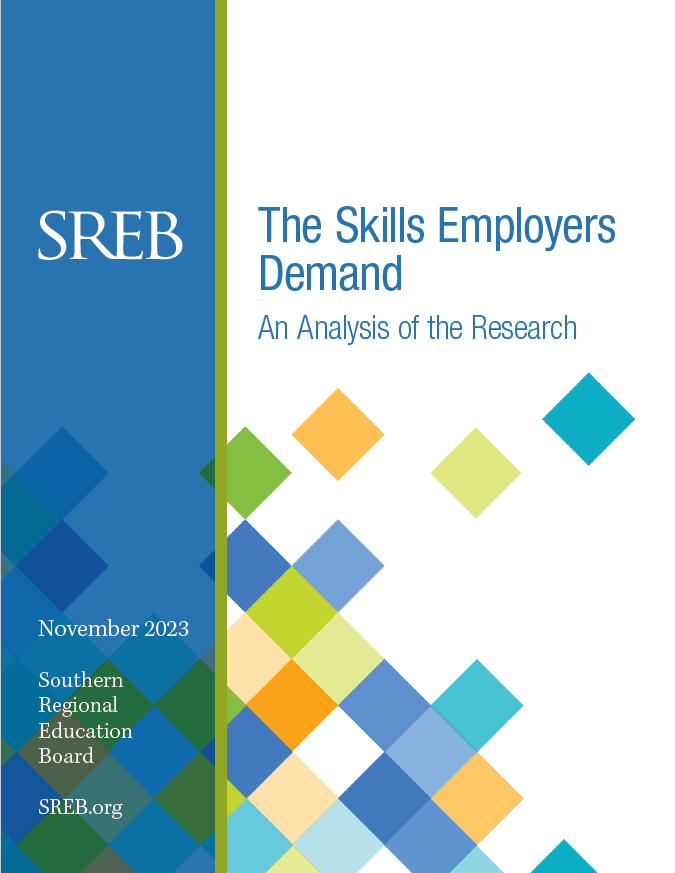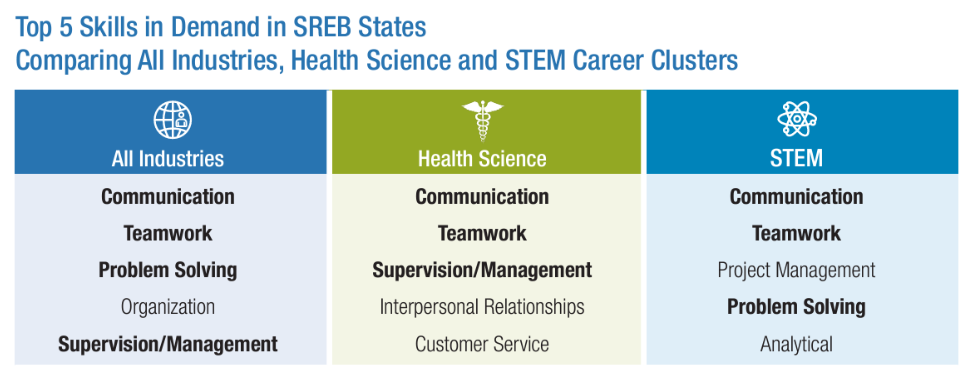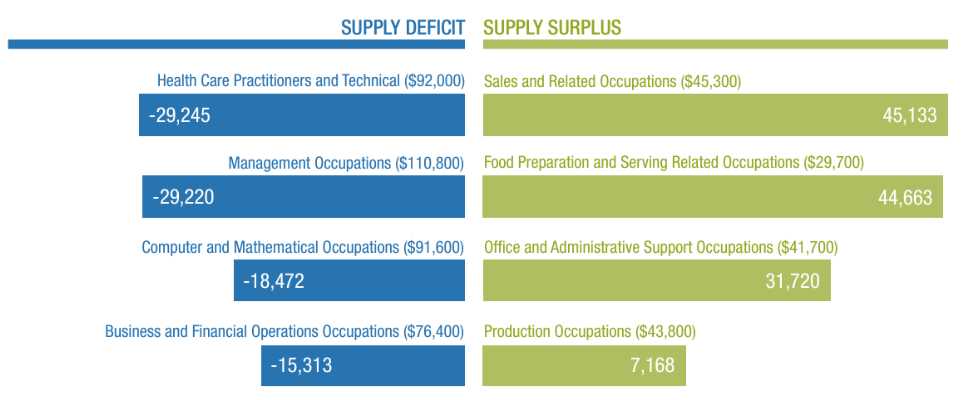The Success Skills Employers Demand Most
SREB Report Offers Guidance for States, Educators
 Communication, teamwork and
problem-solving are clear priorities among success skills that
employers seek, according to a new report by the Southern
Regional Education Board.
Communication, teamwork and
problem-solving are clear priorities among success skills that
employers seek, according to a new report by the Southern
Regional Education Board.
The Skills Employers Demand: An Analysis of the Research summarizes 10 years of studies, from 2013 to 2023, and analyzes job postings in the 16 SREB states.
The report is designed to help educators and policymakers as they integrate these skills into what students learn in K-12, dual enrollment and postsecondary education. SREB’s Dual Enrollment Initiative includes a focus on skills for careers of the future.
Success skills ─ sometimes called soft, durable, non-technical or employability skills ─ are personal qualities that advance careers and increase productivity.
“At a time when we’re all learning how AI can do routine tasks, these are the qualities that set humans apart from machines,” said SREB President Stephen L. Pruitt.
The most sought-after success skills across industries were remarkably consistent in academic and business studies:
- Communication, oral and written
- Teamwork and collaboration
- Problem solving and critical thinking
Supervision and management also emerged as a top skill in health care and STEM industries, where SREB predicts the largest workforce gaps in Southern states.
“There is growing demand for these success skills, which are associated with higher earnings, adaptability, career progression, resilience and productivity,” said Courtney Leidner, SREB research analyst and author of the study.
For Educators and Policymakers
Promising Strategies to Build Success Skills
“Building a plan to change instruction and integrate these skills into all programs of study is an important step,” said Dale Winkler, SREB senior vice president for school improvement. “SREB is committed to helping states and schools tailor strategies for their local areas.”
 Many SREB states are working to
incorporate success skills into what students learn, from K-12
through postsecondary education. In addition to course standards,
research suggests these strategies:
Many SREB states are working to
incorporate success skills into what students learn, from K-12
through postsecondary education. In addition to course standards,
research suggests these strategies:
- Tailor success skills to high-demand industries in your state or community by examining local job data.
- Develop a cohesive approach across K-12, two-year and four-year colleges.
- Use widely recognized credentials with clear criteria from reputable organizations. Credentialing can show employers that high school or college students have passed skills assessments.
- Offer project-based and work-based learning experiences.
Work-based learning allows students to learn to function in the workplace through mentoring, internships, apprenticeships or on-the-job training. It can begin in earlier grades with guest speakers, workplace tours and job shadowing.
Project-based learning, where students learn through practice and feedback on authentic, concrete projects, may be particularly effective in developing collaboration, adaptability and management skills.
The Skills Employers Demand also offers a new analysis predicting top workforce shortages and surpluses over the next 10 years in the 16 SREB states.



